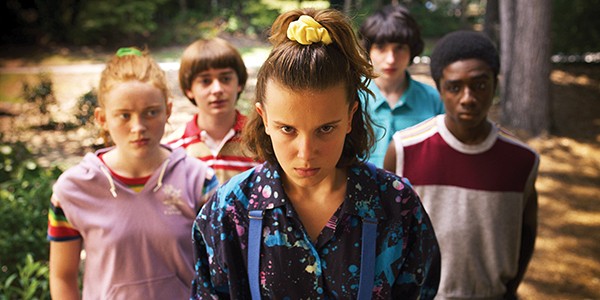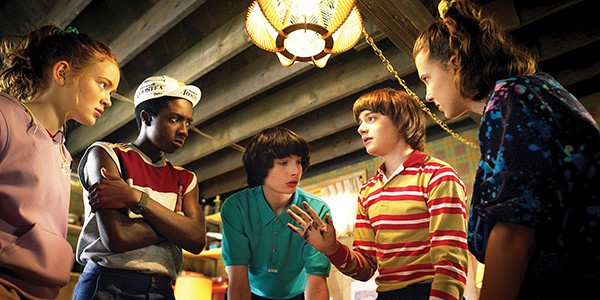The nominees for this year’s Best Actor Academy Awards include powerful performances, from Austin Butler in Elvis to Paul Mescal in Aftersun, but it’s going to be hard to outshine Brendan Fraser in The Whale. Offering a message that extends far beyond its two-hour screen time, The Whale interprets how society understands mental health and how we connect with others.
When we first meet Fraser as Charlie, he’s wheezing uncontrollably and clenching his chest in imminent fear of death. Shortly after this incident, Liz (Hong Chau), Charlie’s friend and occasional caregiver, diagnoses him with congenital heart failure. Charlie has been struggling with morbid obesity, but that’s hardly the only problem affecting his mental health. His partner, Alan, committed suicide, and his relationships with his ex-wife Mary (Samantha Morton) and daughter Ellie (Sadie Sink) are distant, at best. Overall, the prognosis for Charlie’s life is not good, especially since he refuses to go to the hospital or seek any outside help. Instead of saving his own life, Charlie uses all his energy to help others, despite what they think about him or themselves. By the end of the film, Charlie’s physical hindrances become the foundation for recognizing the inherent goodness of humans and the need for people to lean on others.
I have to admit to not having seen many of Brendan Fraser’s films, beyond loving him as Elliot in Bedazzled (2000). Before watching The Whale, the biggest thought I had was, “Is Brendan Fraser going to prove that Oscar nomination right?” When starting the movie, I wasn’t immediately starstruck. Charlie, although representing realistic problems, was a relatively normal character. He was struggling, yet optimistic about life, and wasn’t afraid of death. Nice thoughts, but they could easily fall into cliche. But Fraser drew me in, and by the second half, I had so many tears in my eyes that my right contact lens fell out, and I had to pause to collect myself as the lights came up. That’s all a tribute to Fraser’s ability to transform this potentially flat character into a desperate man just trying to embrace damaged people with love.
Fraser’s talent is evident in Charlie’s relationship with Ellie. She’s a fiery spirit, violently angry at the world and at Charlie, who abandoned her nine years prior. For her to even consider spending time with him, he has to pay her $120,000. In return, she feeds him sleeping pills and repeatedly calls him disgusting. Despite all this, Charlie keeps telling her she is amazing, perfect, and smart. The emotion between Charlie and Ellie is so real, and raw, and important in a tale about mental health. Their relationship shows how even the most damaged and wrongful people can come back from their mistakes and learn to love again.
Appropriately for the story of a homebound person, The Whale is set in just one room of Charlie’s apartment, with staging that sometimes resembles a play rather than a movie. There is little to no music, which forces you to listen and pay attention to what each character has to say. Your sustained attention helps director Darren Aronofsky build complex characters such as Liz. She diagnoses Charlie with congenital heart failure, and then proceeds to feed him a jumbo sized bucket of Kentucky Fried Chicken. She is Charlie’s only true friend, but over time, she uses him as a crutch to evade her own suppressed trauma.
Hidden from the spotlight for some time, Brendan Fraser has definitely come back strong. I will be rooting for him for Best Actor recognition, and continue rooting for him long after the award window closes. Overall, this film definitely gave me hope that the film industry is not saturated with remakes and Marvel movies, but instead yields movies that can deliver a good watch, a good cry, and a heightened perspective.


